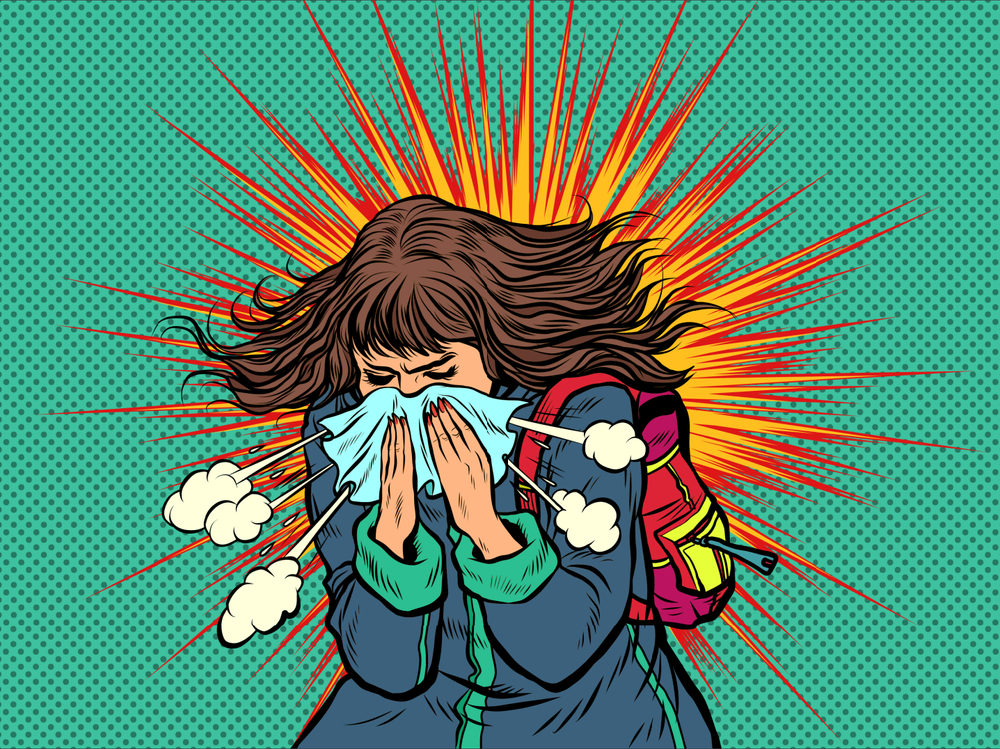This month, some BioBoxers are taking a closer look into the strange, ickier aspects of the human body, and there are quite a few. If you’re looking for some additional experimentation on this topic, consider sneezing.

Sneezing, or sternutation, is the body’s way of expelling irritants and pathogens. It has fascinated people for centuries, and we see that even today. There’s the common myth that sneezing stops your heart, for example, and phrases like “God bless you” have a long history with sneezing’s suspected causes (see the Library of Congress for some theories on their origins). No doubt sneezing can be gross, and as the pandemic has emphasized, it can spread illnesses; nevertheless, it’s necessary. In fact, according to the Cleveland Clinic, in addition to physical ramifications like ruptures, holding in a sneeze can foster bacteria and even lead to ear infections. It’s another example of how our bodily functions may not always be appealing, but they’re undeniably useful.
If your students are particularly interested in bodily functions, they may be interested in a sneezing experiment. One suggestion is to find the best way to minimize the spread of germs from a sneeze. Ariel Zych has an article on simulating sneezes using a squirting device and colored liquid. With the liquid representing germ-filled bodily fluids, students can understand the spread of a sneeze and find the best way to contain it. Is it better to sneeze in your hand or your elbow? What about masks? These are great questions to explore.

If you want a more authentic experience—and if you’re not afraid to get a little icky yourself—you can always repeat one of the MythBusters’ experiments. In their trials, they fill their mouths with colored liquid and actually sneeze instead of using a device to simulate them. Their results might surprise you, and your students could make some new conclusions if they try it themselves. Of course, for those of us who get easily queasy, watching MythBusters may just be enough.
For more experiments, you can get your very own box (with all the supplies and instructions!) delivered straight to your door.
Your students’ first BioBox is not just a starter kit, it is an introduction to the biological world.
Microscope Box
The Microscopic World
Get your own microscope and learn to use it